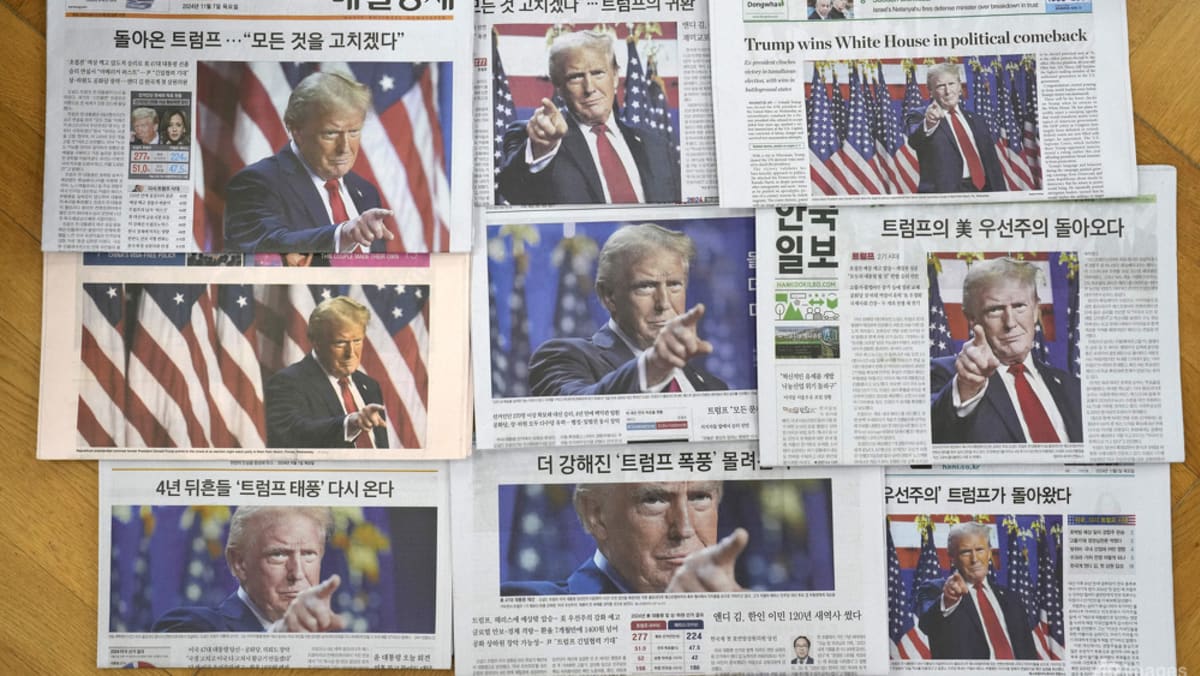Trump will likely try to resume his relationship with Kim in his second term.
This sets up a situation where the United States favours a dictatorship over a treaty ally in its foreign policy. That would be a shift more remarkable than the coming abandonment of Ukraine, which is not a formal US ally.
Trump also has a long history of demanding US allies pay for American security guarantees. He has been particularly extreme regarding South Korea. Just last month, he described South Korea as a “money machine”, saying he wants to multiply by nine times the cost of stationing US troops in South Korea.
Where NATO allies can collectively grapple with Trump’s demands, South Korea’s position is much tougher. It is isolated in northeast Asia. It faces three nuclear autocracies on its doorstep, and its relations with Japan are poor (because of historical grievances dating to Japanese imperialism during World War II). It stands alone against Trump should he act as he did in his last presidency.
This could easily provoke an alliance crisis. Pro-alliance South Korean conservatives might be willing to accede to Trump’s huge financial demand to prevent an alliance fallout. But the public blowback would be intense, and the South Korean left, which is currently in opposition, would use it to pummel the government as weak and craven. The approval rating of South Korea’s current, conservative president, Yoon Suk Yeol, is at an all-time low of just 19 per cent, meaning he likely lacks the public support to appease Trump.













